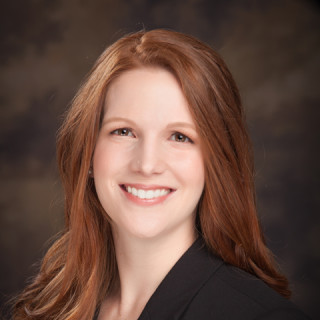
It’s the time of year when it’s starting to get real for the M4s. Some have finished their interviews, and others may have just a few more left to go. (Hang in there!) All of you, though, are likely starting to think about The List and how to make it. I’m about a year out from this process, and I vividly remember the stress of trying to figure out how to MacGyver my Rank Order List into getting what I wanted.
You can’t really MacGyver your list, but there are a few things to think about when making it. Everyone prioritizes differently, so your process is likely to be a little bit different than your colleagues’ — and that’s okay. I’d like to share some thoughts and examples from my own experience, which might help you organize your thoughts, or maybe just give you some confidence that you can find a way to make the right choice for you.
Decide What Is Really Important to You
I had a really difficult time figuring out my priorities when I started to make my list. I made spreadsheets and scored programs based on how I felt about what they had to offer. I totaled up the results over and over, and still felt relatively unsatisfied. I was in a bit of a rut until I realized: I wasn’t getting the result I wanted. This told me something about what I did want, and once I figured that out, I had an easier time getting comfortable with my list. In the end, my husband played a big role in making my rank list, because I realized that I could get good training almost anywhere, but I wasn’t going to be happy unless he was happy with where we ended up.
There Is No Wrong List, Unless It Includes a Program You Hated
I had a really hard time leaving programs off of my list. At the end of the day, I did choose not to rank a few programs, but it was probably the most difficult part of the process. I know the statistics suggest you have a better chance of matching if you rank X number of programs, and wouldn’t it be better to match somewhere you don’t like than not match at all? I had to think about this for a long time, and I finally decided that if I didn’t fit in during the interview, I would likely end up spending several miserable years at that program if I matched there. I wasn’t willing to give up those years to misery, even if I did end up getting what I wanted in the long run.
Don’t Discount the Importance of Getting Along With Your Colleagues
As noted above, your work environment is a big deal while you’re training, and it’s going to be a long couple of years if it doesn’t include some awesome colleagues. In my work both inside and outside of medicine, the people I worked with always made the most difference in how much I enjoyed myself (aside from the work itself, of course). Think back to the interview dinners: did you feel comfortable with the residents? Did the conversation flow well? Could you see yourself spending more time every day with those people than with anyone else in your life? If not, I would strongly recommend moving that program lower on your list, or not ranking it at all. Even if you’re doing something you love, it can turn into something you really don’t like if the people around you don’t complement you well.
If Something Went Wrong With Your Interview, You’re Not Necessarily out of the Running
My interview with my first choice program was not what I was hoping it would be. For starters, I had to send an email to the program director halfway through the interview season reiterating my interest before I even got an invitation. Then, I got stuck in another city the night before the interview. I missed the interview dinner, and I had to call the program coordinator late at night when my flight was canceled. I made the first flight out, got there just in time for my three interviews, and then had to run right back to the airport. I thought there was no way I had a chance, but I matched there anyway. I think the important part of this is ensuring you turn adversity into an advantage by showing programs you can handle challenges with grace: if you let people know you were going to be late and maintained your composure through the situation, you may actually be in pretty good shape.
Rank Based on Your True Preference
It may feel like you have no control over your fate, but the Match does prioritize student preferences in its algorithm. Don’t change your list based on how you think a program feels about you — the more you try to strategize, the less likely you are to get what you want. You wouldn’t want to miss out on your true first choice because you thought another one might rank you higher. Even if you’re not a game theory buff, this video does a reasonable job of explaining why this is the case.
Don’t Make Changes at the Last Minute
Just don’t. It only leads to sadness. Trust yourself and the choices you’ve made.
At the end of the day, you’ve made it this far, and that’s something. Even the best-laid plans often don’t survive first contact, so whether you match, SOAP, don’t match, or choose something else, you should be proud of your success and know that there’s an opportunity out there with your name on it.
Amy Blake is an internal medicine resident and a 2018-2019 Doximity Author. The views expressed herein are solely those of the author and do not necessarily represent the views of any organization with which she is or has been affiliated.







